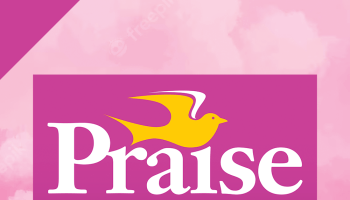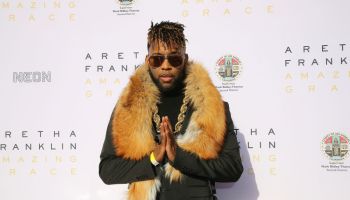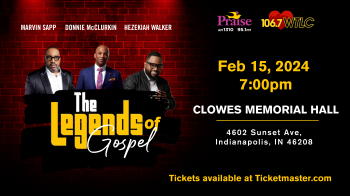Via Bloomberg.com
When the Academy of Motion Picture Arts and Sciences hands out Oscars this weekend, the smart money is on Daniel Day-Lewis to take home the best-actor award for the title role in “Lincoln.” It would be his third Oscar.
Day-Lewis is a remarkable actor, and his performance as the Civil War president is absolutely convincing. He disappears into the role. He probably deserves the award.
But one of his Oscar competitors has achieved something more impressive. In December, Denzel Washington, who is nominated this year for his performance as an alcoholic pilot in “Flight,” came in first when the annual Harris poll asked Americans to name their favorite movie star. It was his fourth time topping the poll.
To win that title, you have to be an excellent actor. But great performances aren’t enough. Your roles and what you seem to be off-screen also have to resonate with the audience — to represent something consistent about who they want to be.
A movie star isn’t just an actor. He or she is what the author Margaret Farrand Thorp, writing during the golden age of the studio system, called an “escape personality” — a stand- in for the audience. Movie stars reveal something about the audiences that embrace them. That was true when Thorp published “America at the Movies” in 1939, and it’s still true today.
A great movie star manages a trickier feat than disappearing into a role. A star makes a character seem real while simultaneously remaining recognizable. Even Johnny Depp, famous for his Protean appearance, is always Johnny Depp: eccentric, intense and otherworldly.
Leading Men
Such consistency is why a movie star can “open a movie,” drawing large audiences the first weekend regardless of the film’s specifics. Ticket buyers don’t just want to see a good performance. They want to spend time with the star. (Contrary to a recent Forbes list, playing a leading role in a popular franchise such as the “Twilight” or “Harry Potter” movies doesn’t by itself make someone a bankable star.)
Audiences know what Washington represents, writes the film scholar Anne Helen Petersen in a blog post: “a blend of charisma and honor, save when he ‘goes bad’ and plays the amoral, the stubborn, the angry.” The “picture personality” his roles establish, she says, “is that of an eloquent, persuasively charismatic man capable of manipulating and transcending the environment in which he finds himself.” He represents a masculine ideal: the smartest, most resourceful character on the screen, and the most powerful physical presence. Whatever the role, his character always commands respect.
Since the Harris survey began in 1994, Washington has been in the top 10 in all but three years, a feat surpassed only by Clint Eastwood (No. 2 in 2012), Tom Hanks (No. 3) and John Wayne (No. 6), who remains the favorite of people born before the end of World War II.
The top three stars cluster close together in the latest survey. “There’s not a huge difference between Denzel, Clint and Tom,” says Regina A. Corso, Harris Interactive’s senior vice president for the Harris poll and public relations. Washington wins among women, Eastwood among men. Washington is No. 1 among Democrats, Eastwood tops Republican lists, and Hanks is the favorite of independents.
In different ways, the three stars all represent similar audience yearnings — above all, the desire for moral significance. Even when they take on ambiguous or immoral roles, these stars always inhabit a universe where right and wrong have weight and consequence. Hanks embodies decency. Eastwood represents inner-directedness and order. And Washington portrays the high-stakes struggle for righteousness and honor — all the more so when he plays fallen or villainous men.
Intensely American
It’s hard to imagine Washington joining an amoral romp like “Ocean’s 11” or “Pulp Fiction.” The same is true for Eastwood and Hanks. They are escape personalities who affirm the importance of virtue.
They are also intensely American figures, embodying different national myths. As both a star and the producer- director of “Band of Brothers” and “From the Earth to the Moon,” Hanks represents the New Deal patriotism of the postwar vital center, with its faith in collective endeavors and the institutions that pursue them. Eastwood is, of course, the contemporary incarnation of the frontier hero. They are the James Stewart and Gary Cooper of our times.
But Washington, who won his first Oscar for playing a slave-turned-Union-soldier in “Glory,” is something that didn’t exist in old Hollywood. Moviegoers, Thorp wrote in 1939, “are primarily white and no white American, the industry maintains, would ever make his escape personality black.”
That has changed. In the Harris poll, Corso says, “Denzel Washington was No. 1 for whites, for African-Americans and for Hispanics.” Audiences identify with him, regardless of race.
That doesn’t make him ethnically neutral. He is a star and thus always himself. We don’t forget his race in order to accept his individuality or that of his characters; his heritage is part of who he is. (Angelina Jolie can similarly play action roles written for men, but no one ever forgets she’s a woman.)
When Washington takes on a supposedly nonracial part like the pilot in “Flight” or the bad cop in “Training Day,” he inhabits the role with a body, an accent and an attitude that are, like his first name, identifiably African-American. He is not a man who tolerates disrespect. And because he is almost always the most capable, and often the most admirable, guy in the room, audiences don’t just respect him. They want to be him.
(Virginia Postrel is a Bloomberg View columnist. She is the author of “The Future and Its Enemies,” “The Substance of Style” and the forthcoming “The Power of Glamour.” Follow her on Twitter. The opinions expressed are her own.)
To contact the writer of this article: Virginia Postrel at .
To contact the editor responsible for this article: Tobin Harshaw at tharshaw@bloomberg.net.












